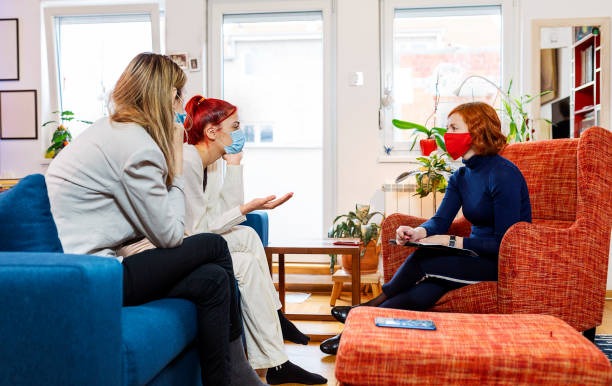Addiction doesn’t affect everyone the same way. For many women struggling with substance use, trauma, or mental health disorders, traditional treatment models don’t always meet their specific emotional and psychological needs. That’s why more women are seeking out recovery spaces designed specifically for them — and why a Women’s Residential Treatment Center can be a transformative step in reclaiming health and stability.
Women often carry unique histories into treatment — from past trauma and caregiving responsibilities to co-occurring mental health disorders that are frequently underdiagnosed or misunderstood. A gender-responsive setting doesn’t just acknowledge these differences; it builds healing directly around them.
Why Gender-Specific Treatment Matters
Standard treatment programs are often structured around a general population, which can unintentionally silence or overlook women’s experiences. In mixed-gender environments, women may hesitate to share openly, especially when dealing with histories of abuse, neglect, or stigma around motherhood and substance use.
In a dedicated women’s facility, the atmosphere often shifts from guarded to safe. Women find space to unpack deeply personal stories and develop strength among peers who truly understand the weight of their struggles. This shared understanding lays the groundwork for trust, vulnerability, and real therapeutic progress.
The Role of Safety in Women’s Recovery
Safety is the foundation of effective healing, and for many women in recovery, it’s non-negotiable. A residential program designed specifically for women fosters an environment free from judgment, harassment, or gender-based pressure. This safe space allows participants to focus fully on themselves, not on how they’re being perceived.
Therapeutic interventions in these environments are also trauma-informed by default, with staff trained to recognize and respond to PTSD, sexual trauma, emotional abuse, and generational trauma — all of which disproportionately affect women in addiction treatment settings.
Addressing Co-Occurring Disorders in Women
Depression, anxiety, PTSD, eating disorders, and mood instability are more commonly diagnosed in women than men, and they often run in parallel with substance abuse. Without a treatment model that’s attuned to this, women’s symptoms may be missed or misdiagnosed, causing relapse or incomplete healing.
A specialized Women’s Residential Treatment Center provides integrated care that doesn’t treat addiction in a vacuum. Instead, it addresses the whole person, including the emotional, psychological, and relational roots of substance use.
What to Expect in a Women’s Residential Program
While every program varies, high-quality residential centers for women typically offer:
- Safe and structured housing in a female-only environment
- Individual and group therapy led by trauma-informed clinicians
- Holistic services such as yoga, art therapy, or mindfulness
- Medical care for detox and physical wellness
- Dual-diagnosis treatment for co-occurring disorders
- Life skills training to support re-entry into work or family life
These services aren’t just supportive — they’re often the difference between surface-level sobriety and long-term recovery.
The Power of Peer Support
For many women, healing starts when they realize they’re not alone. In a women’s residential setting, clients often form strong, supportive bonds with one another. This peer connection is critical. Women who might have felt isolated, ashamed, or judged elsewhere begin to feel seen and understood.
These relationships are often rooted in shared experiences of abuse, motherhood, divorce, loss, or mental health struggles, and they help women rewrite the narrative of their lives from isolation to empowerment.
Rebuilding Identity After Addiction
Addiction can consume a person’s identity — but for women, it often collides with roles they’ve spent years building: mother, partner, professional, caregiver. As a result, shame and guilt can run deep.
Residential treatment provides the time and space to rebuild from the inside out. Through therapy, education, and self-care practices, women start to reconnect with their values, strengths, and desires. They learn to put themselves first again — not in a selfish way, but in a way that affirms their right to heal.
Healing the Mother-Child Relationship
Many women entering treatment are also mothers. The fear of losing custody, the shame of parenting under the influence, and the pain of separation can become roadblocks to recovery. Residential programs with parenting support and family-focused therapy help address these dynamics head-on.
In some cases, facilities allow children to stay on-site or visit regularly. Others offer parenting classes or supervised contact, helping mothers rebuild trust with their children and re-enter parenthood with renewed clarity and support.
The Importance of Aftercare for Women
Healing doesn’t end when residential treatment does. That’s why women-focused programs often include detailed aftercare planning that takes into account housing, employment, family reunification, and continued therapy.
Post-treatment support might include:
- Outpatient therapy and medication management
- Sober living options tailored for women
- Career coaching or job placement services
- Peer recovery groups and alumni networks
- Childcare referrals or legal aid assistance
The best treatment programs see recovery not as an event, but as an evolving journey — one that continues long after discharge.
Who Should Consider a Women’s Residential Treatment Center?
If you or someone you love is struggling with addiction and feels unseen in standard recovery spaces, a women-only program may offer the clarity and safety needed to truly begin healing.
A gender-specific program is especially recommended for women who:
- Have a history of trauma or abuse
- Struggle with mental health alongside addiction.
- Need a break from caregiving roles to focus on self
- Have relapsed after attending mixed-gender treatment
- Feel judged or unsafe sharing in co-ed groups
Even if you’ve tried treatment before and it didn’t work, the right environment — one built for your specific needs — can make all the difference.
Final Thoughts: A Space to Reclaim Your Life
Addiction recovery is a vulnerable, courageous act. For women, it’s often complicated by cultural expectations, gender-based trauma, and the weight of caregiving. That’s why dedicated spaces like a Women’s Residential Treatment Center are not just helpful — they’re necessary.
In a place where your story is honored, your voice is heard, and your healing is centered, recovery becomes more than possible. It becomes sustainable. It becomes personal. It becomes yours.


